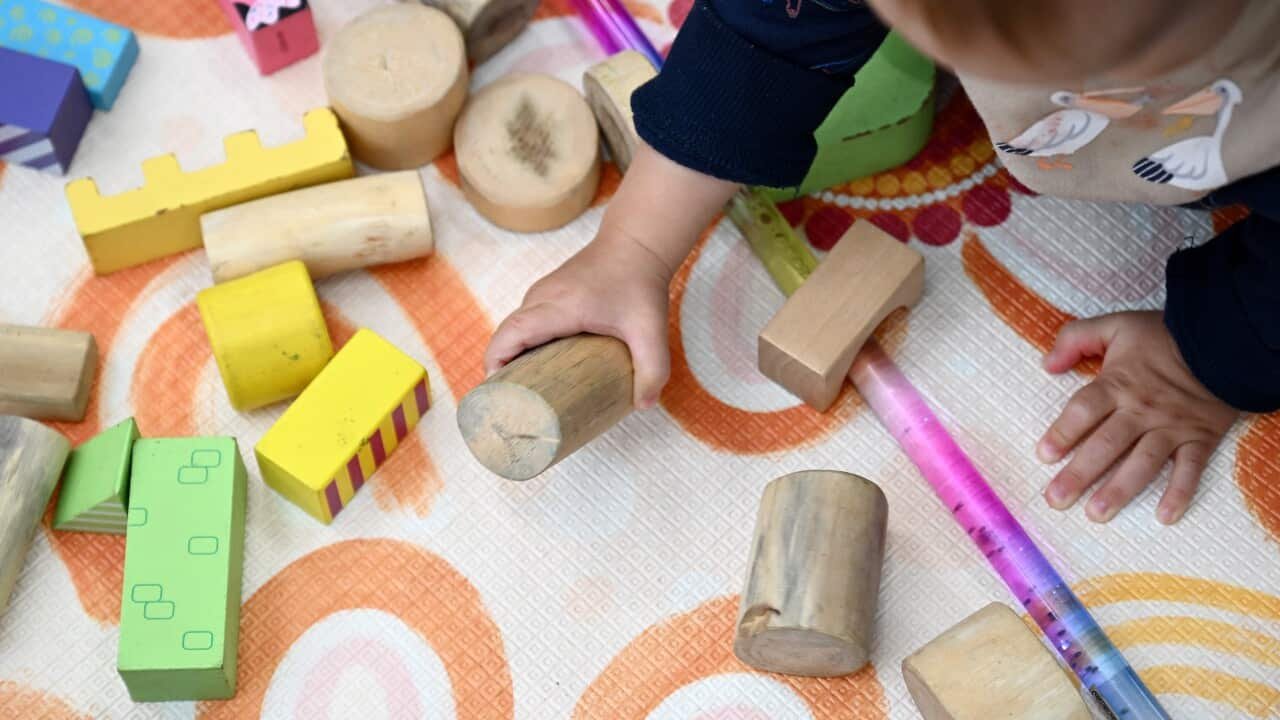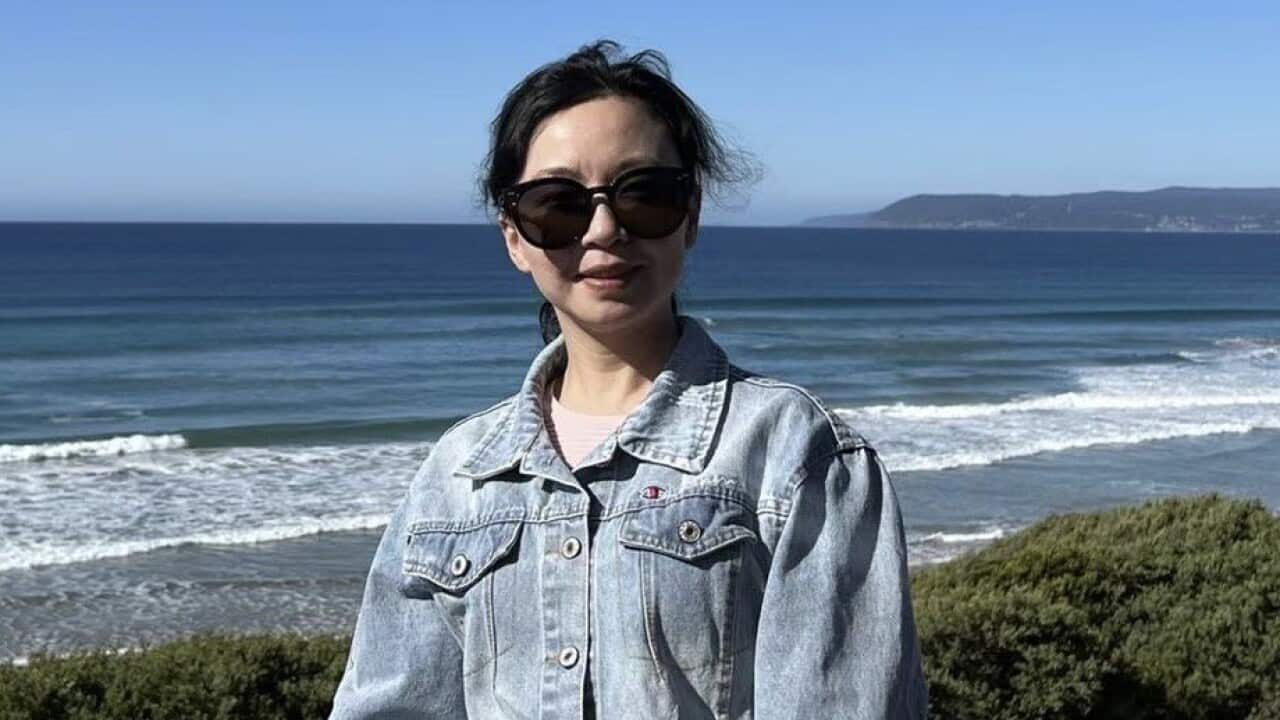Key points:
- Women account for up to 93.3 per cent of the childcare workforce, a new report shows.
- Research shows male teachers bring 'a richness to children's learning'.
- Some parents don't want men to change nappies, according to a male jobseeker.
Sydney childcare educator Ma* claims he lost out on a job opportunity due to his gender.
A recent graduate, Ma said he had eagerly entered the industry but faced a “harsh reality”.
He told SBS Chinese that he had performed well in an interview for a casual position at a childcare centre and was poised to start work but was rejected by parents solely because he is a man.
“After returning home, he [the interviewer] told me on the phone, ‘Sorry, but the parents can't accept a male educator’,” Ma said.
“Even if I got the job, it would only be difficult. I believe this situation is unchangeable,” he added.
Ma noted that Australian childcare centres and kindergartens typically did not have surveillance cameras so as to protect the privacy of the children.
However, this raised concerns for parents about leaving their children under the care of male educators, especially during tasks like nappy changes, he said.
Ma said during his internship, he was not allowed to even learn how to change nappies because parents did not want him involved however the same rule had not been applied to female interns.
It was only through his own efforts that he eventually learned this skill after several casual jobs.
'Overwhelmingly female' workforce
According to a report by , the Early Childhood Education and Care (ECEC) sector is "overwhelmingly female" with women accounting for up to 93.3 per cent of the workforce, far exceeding the average proportion across all industries (48.6 per cent).
This imbalance extends beyond numbers, influencing societal perceptions and parental attitudes.

According to a report by Jobs and Skills Australia on 4 September, females account for up to 93.3 per cent of the workforce. Source: Supplied / Jobs and Skills Australia - The Future of the Early Childhood Education Profession Report
She told SBS Chinese: "I think there are stereotypes that the childcare industry is more suitable for women. I believe I am influenced by these stereotypes."
Apart from gender stereotypes, Ashley acknowledged that her concerns stemmed from fears of child abuse incidents, though she recognised that these concerns were probably baseless and biased.
Not all parents, however, shared this view of male childcare workers.
Manyu, a Chinese mother of one son and one daughter in early education, said: "I believe male teachers play a crucial role in children's development, offering unique perspectives and experiences."

Ashley, a Chinese parent of two daughters in early education, admitted that she preferred an all-female childcare environment. Source: Supplied
"Young children, especially those under two or even just a few months old, they cannot articulate ... If they experience harm, it's challenging for them to express it in words," she said.
Manyu said her children had had positive interactions with male teachers at kindergarten, highlighting the significance of gender diversity in children's growth.
A more diverse learning experience
Karen Thorpe is Australian Research Council Laureate Professor and Group Leader in Child Development, Education and Care at the Queensland Brain Institute, The University of Queensland.
, also from The University of Queensland, reveals that male childcare educators make distinct contributions to children's learning and development.

Manyu and her children. Source: Supplied
"Furthermore, educators in our study suggest that by simply being different from the 'normal' carer, men contribute to a changed dynamic that allows children to have a more diverse learning experience."
Ma mentioned in his experience many parents of sons welcomed male teachers, believing they could lead children in more physical activities and help foster "masculinity".
He said: "Compared to my female colleagues, I may prefer activities that develop children's physical skills. I prefer outdoor, dynamic environments to indoor, quiet ones."
"But this could be due to personality. Regardless of gender, both male and female teachers are striving for gender equality and rejecting stereotypes.
"Within the industry, it's quite equal, but parents have varying views."
Current childcare workforce is 'unsustainable'
According to the Jobs and Skills Australia report, despite having 200,000 practitioners, the ECEC industry is still facing a shortage of 20,000 professionals.
An eight per cent increase in staffing is needed to address this issue, it said.

Men make up less than seven per cent of Australia's early childhood workforce. Credit: SDI Productions/Getty Images
A spokesperson from Australian Childcare Alliance (ACA) said: "The early learning sector as a whole is making strides to improve gender parity across services and encourage more men into the sector."
The spokesperson mentioned that ACA was actively promoting gender equality and diversity "through initiatives such as the Thriving as Male Educators community, which gives male educators an opportunity to connect and share experiences".
"This is a growing sector with many opportunities for employment all over the country, and fulfilling careers are there for men just as for women," the spokesperson said.
However, Ma said he was doubtful that such steps would address other factors deterring men from working in the industry.
In his case, he said he had spent considerable time convincing his parents to support his choice of majoring in childcare as a male. Many families preferred men to pursue other teaching roles rather than childcare, he said.
Salary and benefits are also a major concern. Ma pointed out that the salary of childcare workers was insufficient to support family expenses.
Moreover, Ma stated the demanding work and pressure in the childcare sector deterred many male workers.
He described the work as "both physically and mentally exhausting".
Ashley urged childcare institutions and regulatory authorities to enhance the rigour and transparency around background checks, allowing parents to understand the selection process for male practitioners in early childhood education and clearly know their intentions and passion for the profession, thereby increasing parental acceptance.
SBS Chinese sought comment from the Australian Children's Education and Care Quality Authority (ACECQA) but had not received a response by the time of publication.
Manyu disagreed that there was a need to excessively explore the motives behind men working in the ECEC sector.
"We should have a more open mindset," she said.
"Children should be exposed to different genders, different ethnicities, especially since Australia itself is a very diverse country. How can you possibly distinguish between them?"
*Name changed for privacy reasons.










